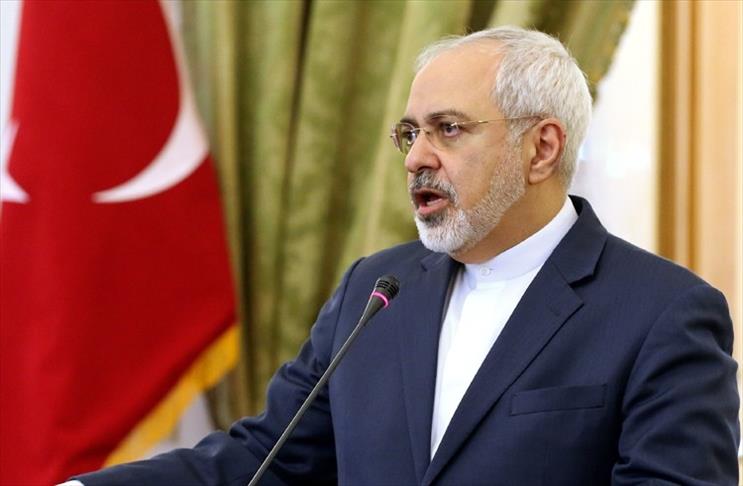
By Halima Athumani
KAMPALA
The governments of Uganda and Iran on Tuesday signed a memorandum of understanding on political and diplomatic consultations.
"We've been on the side of the African struggle for self-determination and the struggle against apartheid ever since the victory of [Iran's 1979] Islamic Revolution," visiting Iranian Foreign Minister Mohammad Javad Zarif told reporters following a signing ceremony held in Kampala.
He stressed that Tehran attached great importance to its relations with Africa.
State Minister for Foreign Affairs Okello Oryem, for his part, said the agreements would bolster Uganda's diplomatic and political engagement in international agencies and organizations.
"We will support them [the Iranians] on issues that are tabled before the UN Security Council and within UN organizations. We hope they will support us whenever there is a pertinent issue regarding Uganda," he said.
The UN General Assembly's current president, Sam Kuteesa, hails from Uganda.
"In that sense, we want to continue developing the [Uganda-Iran] relationship, which we feel is very important – particularly when you need such support," said Oryem.
Zarif, who is currently on a two-day state visit to Uganda as part of a regional tour, said Iran has worked with Uganda previously in a number of international forums.
"We have enjoyed the support of our friends in Uganda on the multilateral stage on the support of nuclear issues with regards to human rights, and we stand with Uganda on all these issues," he noted.
Negotiators from the five permanent members of the UN Security Council (the U.S., U.K., China, France and Russia) and Germany, also known as the P5+1 group, have tried to broker a deal with Iran for the last 18 months with a view to bringing the country's nuclear program under an international monitoring scheme.
But two deadlines have already passed without achieving a comprehensive accord.
"Unfortunately, there are pressure groups in the West that are not interested in the agreement and which want to see turmoil, conflict and tension in our region in order to advance their interests," said Zarif.
The West accuses Iran of trying to develop nuclear weapons and wants Tehran to curb its nuclear program in return for lifting sanctions.
Iran insists, however, that its nuclear program is intended for entirely civilian purposes.
"Uganda and the rest of the Non-Aligned Movement have worked actively over the past many decades to rid the world of these weapons," said Zarif.
He expressed his belief that nuclear technology for peaceful purposes was the inherent right of every member of the international community.
Tehran's nuclear program, the diplomat said, "is the work of our scientists and the outcome of considerable struggle. We will not relinquish this right, or the technology that we have achieved."
Oryem, for his part, is hopeful that the ongoing P5+1 talks will be rational, conducted on a level playing field, and prove beneficial to all parties involved.
"What Uganda wants is an outcome that reflects our foreign policy regarding the use of nuclear energy," he said.
Uganda insists that nuclear energy should be used for peaceful and progressive purposes, such as energy, industrialization, medicine, research and agriculture.
Coalition
The Iranian foreign minister, meanwhile, said he had an "extremely interesting and educational meeting" with Ugandan President Yoweri Museveni.
He said he was highly impressed by Museveni's "independence and resistance to pressure."
"That is what binds us together; the coalition against domination – that is what we attach great importance to," said Zarrif.
Tehran's top diplomat said the two countries shared common values, interests and challenges.
"Our common values are founded in the principles of our independence and our struggle for self-determination, which we share with you – this has brought us together for the past many years," he added.
Zarif went on to assert that there was enormous potential for cooperation between Iran and Uganda in various fields, including politics and economy.
"These [shared] interests are enormous; we've only scratched the surface," he said.
According to Zarif, the business delegation that had accompanied him to Uganda planned to explore possibilities of cooperation at the private-sector level as well.
The Iranian foreign minister took note of the two countries' common challenges, citing external interference, extremism and violence.
"Common challenges require us to work together and rely on our own capabilities, resources, potentials and values," he said.
Anadolu Agency website contains only a portion of the news stories offered to subscribers in the AA News Broadcasting System (HAS), and in summarized form. Please contact us for subscription options.







